How the flip-flop supply chain uncovers the dark side of globalisation
The simplicity of the world’s highest-selling shoe defies the complexity of its production – a process involving immeasurable waste, impoverishment and displacement
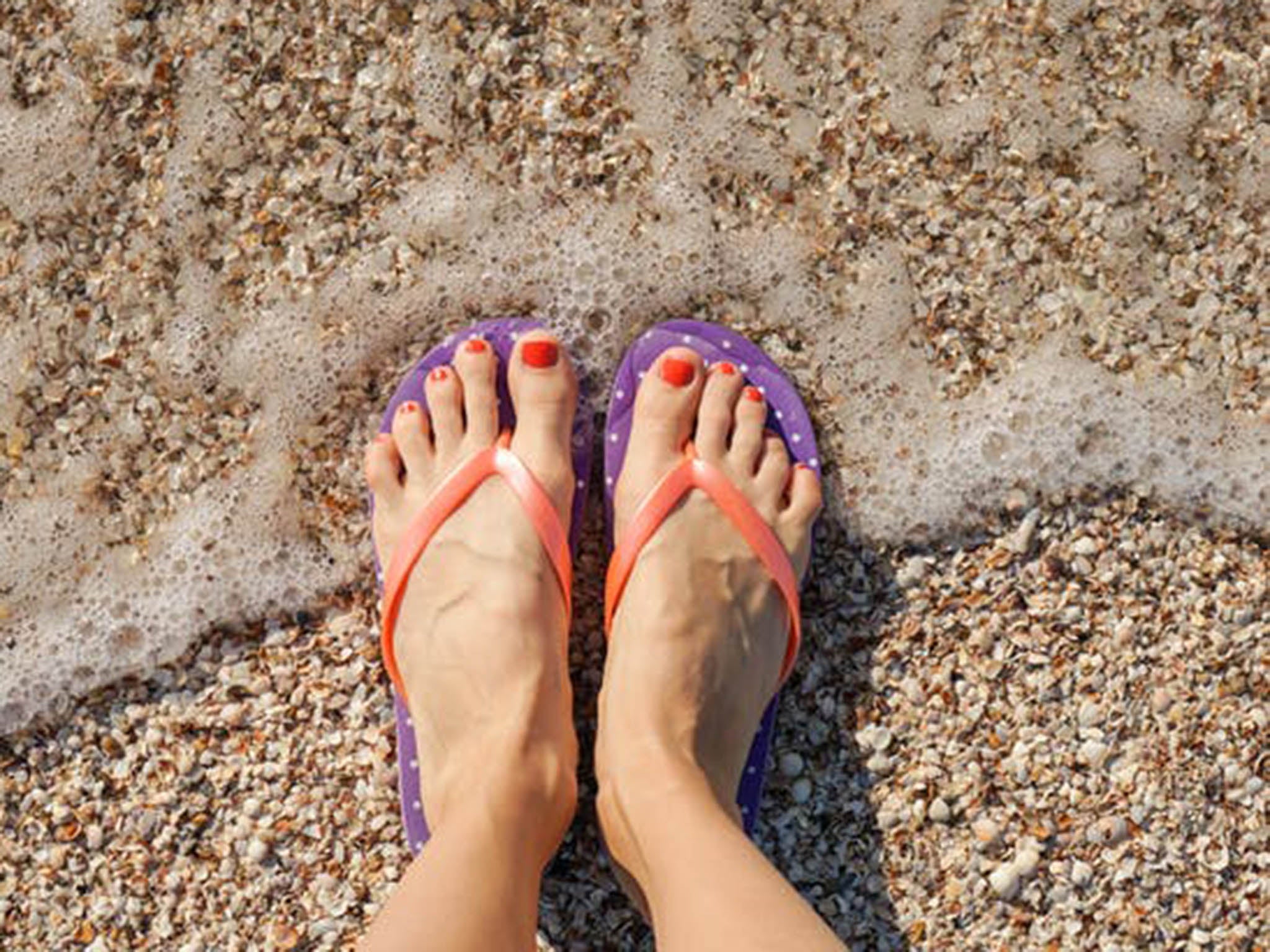
Your support helps us to tell the story
From reproductive rights to climate change to Big Tech, The Independent is on the ground when the story is developing. Whether it's investigating the financials of Elon Musk's pro-Trump PAC or producing our latest documentary, 'The A Word', which shines a light on the American women fighting for reproductive rights, we know how important it is to parse out the facts from the messaging.
At such a critical moment in US history, we need reporters on the ground. Your donation allows us to keep sending journalists to speak to both sides of the story.
The Independent is trusted by Americans across the entire political spectrum. And unlike many other quality news outlets, we choose not to lock Americans out of our reporting and analysis with paywalls. We believe quality journalism should be available to everyone, paid for by those who can afford it.
Your support makes all the difference.As you pack for your holidays, don’t forget to pack your flip-flops – and treat them with respect. They may have travelled more than you and witnessed things you cannot see. Flip-flops may look simple and cheap but they are part of a bigger and more complicated story.
Flip-flops are the world’s highest-selling shoe – outselling even trainers. Uncounted billions of them are made every year, often in small factories in China. Flip-flop sales rise with the world population. As one billion people globally still walk barefoot, they are a first step into the world of shoes across the global south.
Many of us may regard them as beachwear but in some places they are a prized pair of shoes for everyday use. They also tell stories of how globalisation actually works on the ground, as I discovered in following them along what I call the flip-flop trail.
Flip-flops are made from plastics, and so their story begins in the hydrocarbon economy – in the oilfields of the Middle East. The raw material from which they are made is drilled by migrant workers from Syria and southern India, who live in desert camps and work on drilling rigs for 12-hour shifts in searing heat.
Some of the petrochemicals extracted from crude oil are made into little plastic pellets in giant unpeopled plants in the South Korean city of Daesan, an important centre globally producing the building blocks that make all kinds of plastics. These pellets are made by teams of petrochemical workers who prowl the plant checking on the machinery they operate at a distance from computer screens.
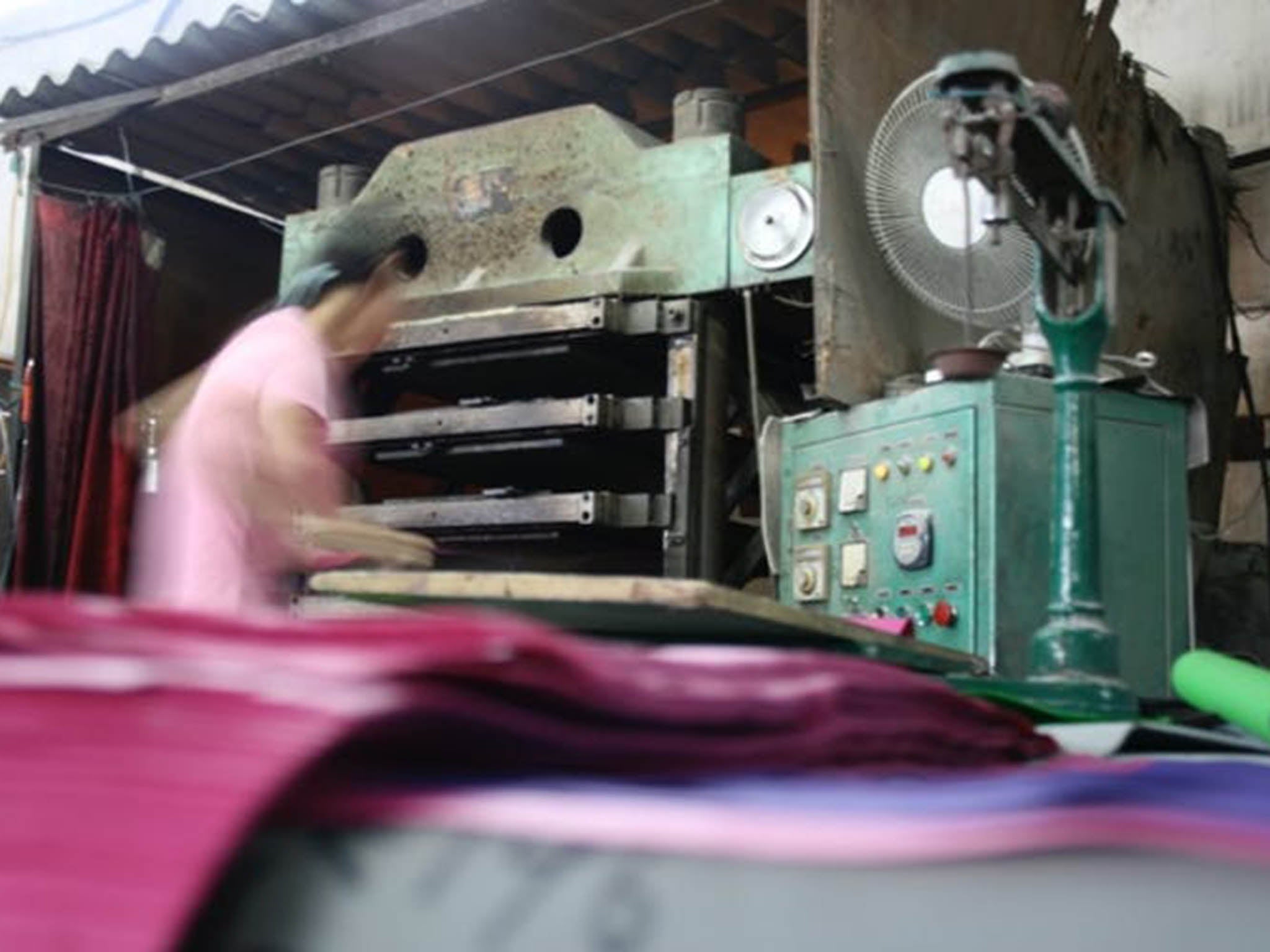
The plastic pellets are bought by millions of small and medium-sized flip-flop factories throughout the world in production clusters where labour is cheap – places like Vietnam and various parts of Sub-Saharan Africa. Rural migrants still make them in southeast China, in small factories in industrial villages that sprout up on farmland. Plastic waste is heaped around the countryside like small colourful mountains of acid pink and blue. As China crept up the value chain, so production moved to other places and shaped the lives of other workers who live in equally precarious ways.
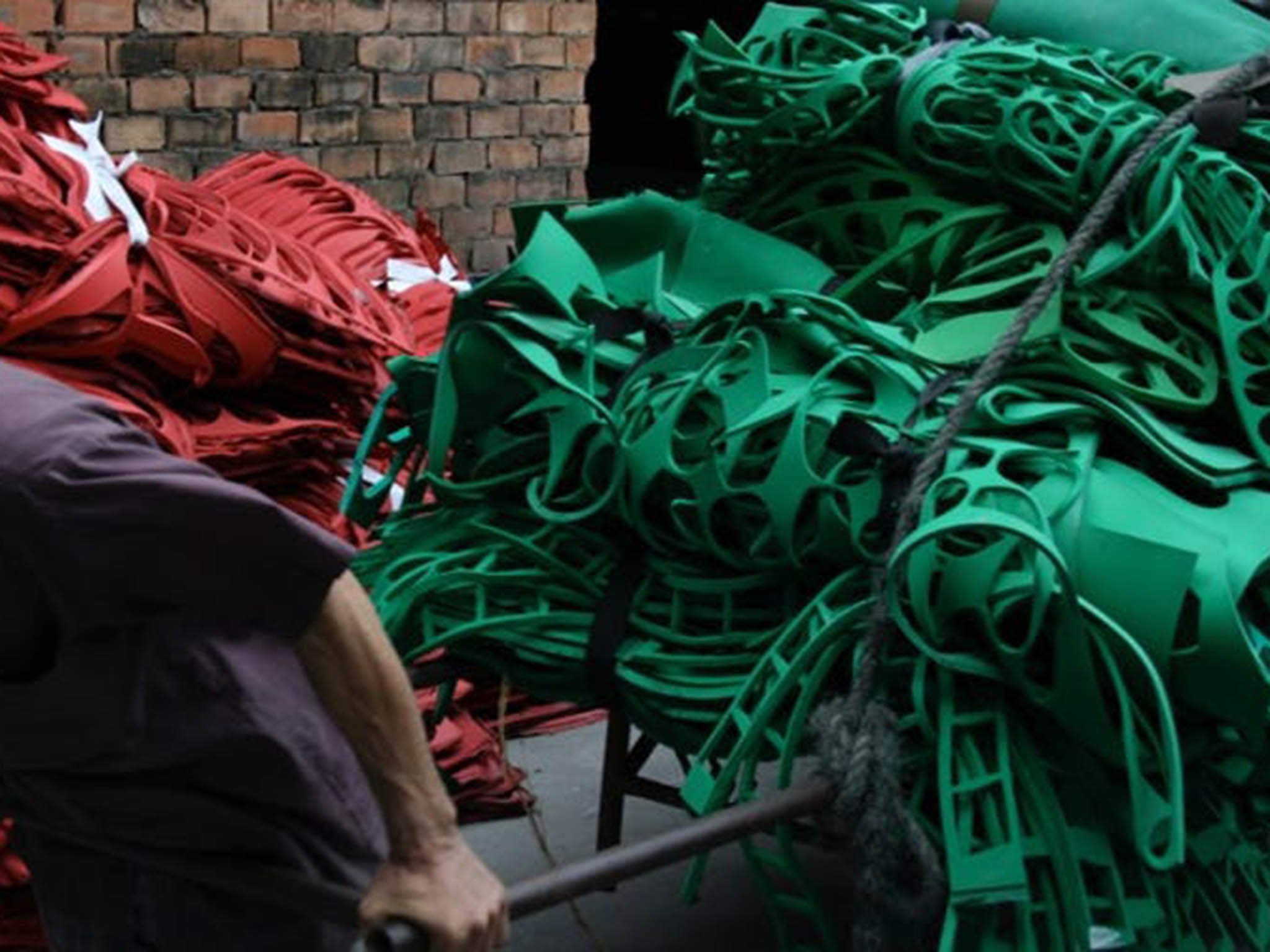
Flip-flops in use
Flip-flops’ biggest markets are in low income countries. Ethiopia, a landlocked state in East Africa, is the one of the biggest consumers of cheap flip-flops. Here, I followed the containers of flip-flops from the Somaliland coast and across the Ethiopian border to discover that many of the flip-flop routes are designed to evade import duties.
A shifting matrix of highly skilled smugglers move them at great personal risk. As they arrive in the Mercato, Addis Ababa’s vast central market, smuggled and officially imported flip-flops are indistinguishable, except for their price: the smuggled ones are cheaper and appeal to a poor population that lives carefully on slender resources.
The flip-flop story ends, or so I thought, on a landfill site called Koshe on the outskirts of Addis Ababa. Here I spoke to some of the 200 “scratchers”, as they call themselves, who pick up waste materials like metal, wood and plastic that can be sold to recycling plants. The site is visually spectacular – vast and piled with rotting debris in muted colours: its scratchers in the same murky colours melting into the landscape.
As trucks arrive from different parts of the city and discharge their loads, there is an intense struggle between the scratchers to grab the best bits. Scratchers read the geographies of the city from the neighbourhoods producing the garbage. Bole with its upscale malls produces some of the best waste and the fiercest struggles. Often unrecyclable plastic flip-flops will lie in the garbage for more than a hundred years before they decompose.
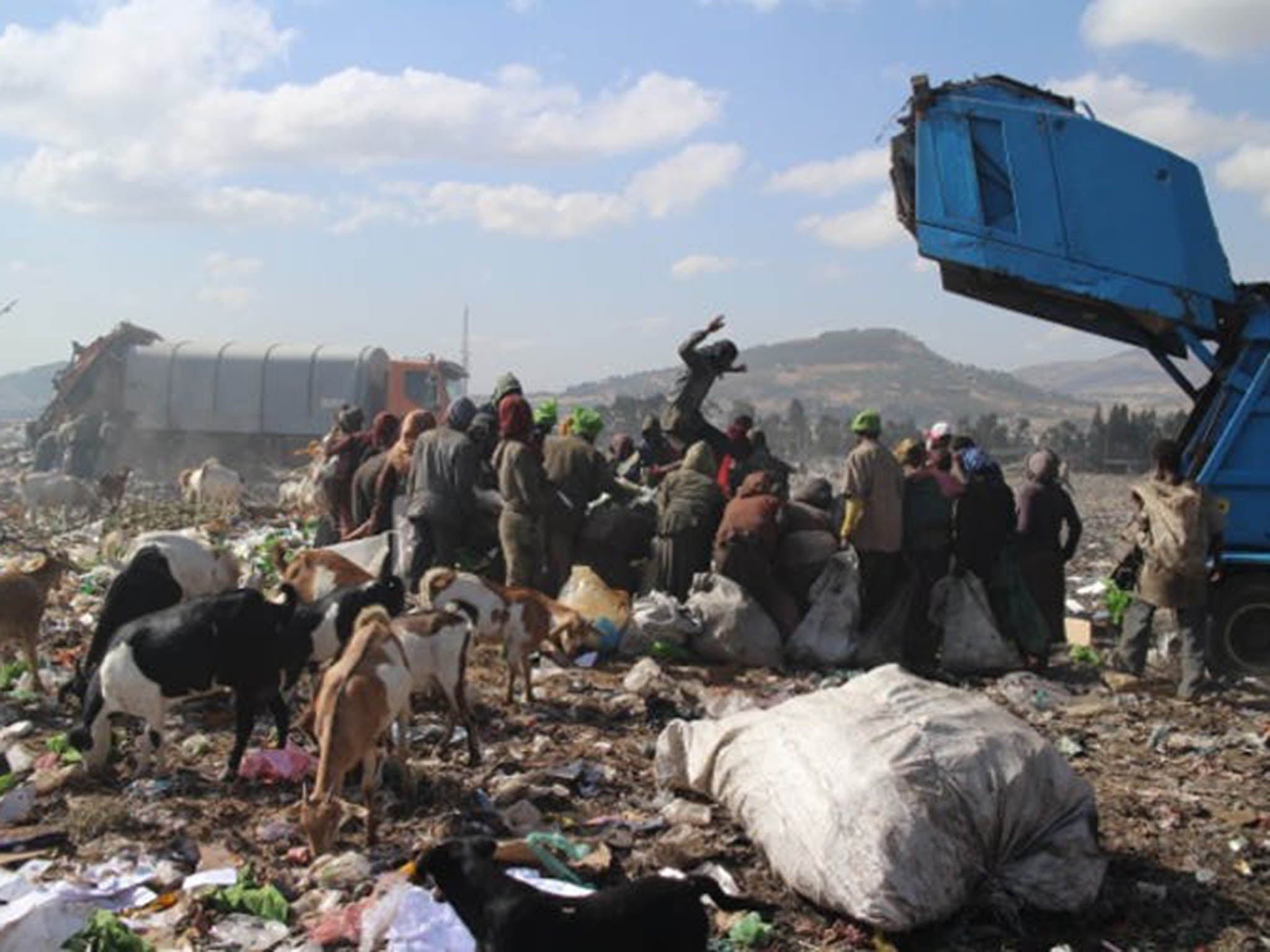
This flip-flop trail pieces together an unfamiliar picture of globalisation as an ad hoc mosaic of shifting connections between lives and ways of getting by, rather than the smooth operation of global commodity chains we have been led to believe in. Connecting smugglers, disposable workers, garbage pickers and the poorest of consumers, this is one of globalisation’s darker stories.
A bleak postscript
But as I later discovered, the trail does not end here. Garbage is not just inert discarded material, but an active agent in making the future.
Things became darker than I could have imagined last year when Koshe, the landfill site outside of Addis Ababa, collapsed, killing more than 113 people and injuring many more. The causes of the collapse are still to be determined. The site had been closed in 2016 to make way for larger, privately run recycling centres, but was reopened briefly at the time of the disaster due to unrest about compensation and the impact on farming around the new centres.
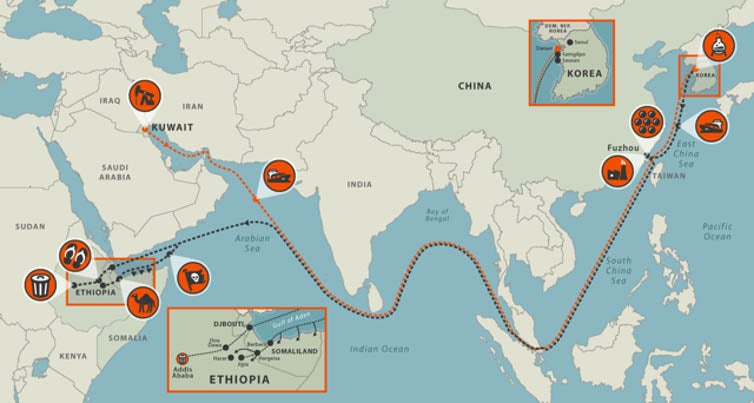
This situation is a part a bigger story. The city of Addis Ababa is growing and absorbing farmland as it does so. The city master plan, which has been more aggressively implemented from the end of 2015, is disastrous for people who share the same precarious circumstances as the scratchers. Their informal settlements and subsistence farming is on land which is being sold to developers building upscale housing. As the city expands, once marginal land becomes valuable.
Ethiopia has one of the world’s fasted growing economies, estimated to be expanding at between 7 percent and 10 percent a year. And yet, experts report that this has not lowered levels of poverty;33.5 percent of Ethiopians still live in extreme poverty. The government selling farmland to developers for private profit removes the precarious opportunities on which the poor subsist. Luxury housing for wealthy Ethiopians comes at a cost born by the poor.
Tracing a piece of Chinese plastic supplying a first step into the world of shoes for the poor led me to a landscape of impoverishment and displacement. So treat your beach flip-flops with respect. There is more to them than first appears.
Caroline Knowles is a professor of sociology at Goldsmiths, University of London. This article first appeared on The Conversation (theconversation.com)
Join our commenting forum
Join thought-provoking conversations, follow other Independent readers and see their replies
Comments